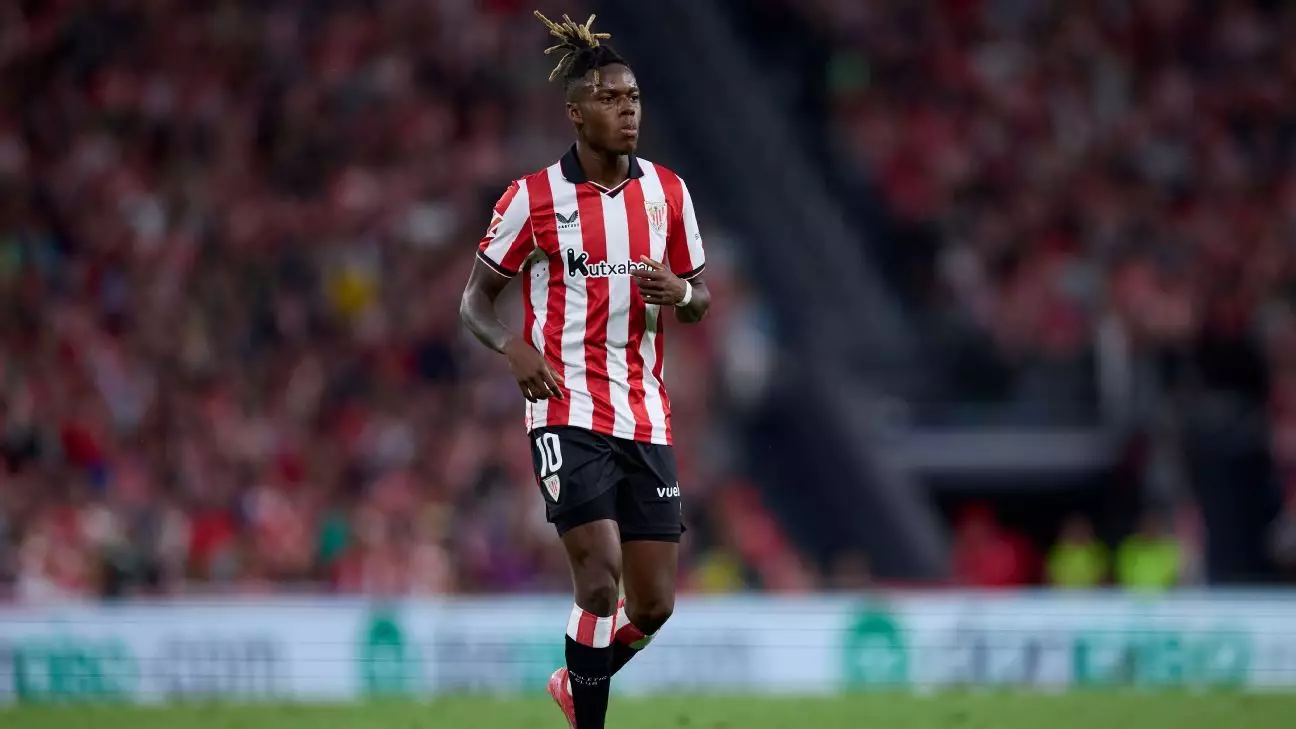Nico Williams’ recent move to expedite his transfer to Barcelona signals the kind of decisiveness not often seen in the typically slow-paced world of football negotiations. The 22-year-old winger, currently with Athletic Club, has already made his intentions clear by agreeing to personal terms with Barcelona, despite reportedly turning down more lucrative offers elsewhere. This willingness to sacrifice immediate financial gain for a strategic career step underlines Williams’ long-term thinking and ambition.
His insistence on completing the deal before training recommences on July 9th reveals a player eager to avoid the distractions and complications that arise from uncertain futures while in a team environment. It also hints at the emotional and professional difficulty players face when tied to clubs during unresolved transfer sagas. Barcelona, meanwhile, face the challenge of meeting his release clause swiftly to cement the deal, balancing budget constraints with the urgency demanded by the player.
Paris Saint-Germain’s Quiet Interest and the Race for Diogo Leite
On the defensive front, Paris Saint-Germain’s growing interest in Union Berlin center-back Diogo Leite adds an intriguing layer to the summer transfer chessboard. The 26-year-old defender’s €13 million price tag, given his contract running through 2026, presents an attractive proposition for a club seeking to bolster their backline without extravagant spending. PSG are not alone; Bayer Leverkusen and several Premier League and Serie A clubs are also savvy observers of Leite’s availability, suggesting a competitive market.
Leite’s situation exemplifies a broader trend in modern football whereby mid-tier clubs become talent incubators for established giants. His versatility and age make him an appealing target, but the final decision will likely hinge on which club offers the best project rather than just financial incentives. Here, PSG’s reputation for championship aspirations could be a decisive factor, countering Bayer Leverkusen’s Bundesliga exposure or the allure of English and Italian top-flight football.
The Dynamics Shaping Joao Pedro and Yunus Musah’s Futures
Meanwhile, the saga surrounding Joao Pedro’s future underscores the fiercely competitive nature of transfer battles for high-potential forwards. Brighton’s firm refusal of Newcastle’s £50 million offer reflects not only a valuation dispute but also Brighton’s clear knowledge of Pedro’s worth and ambition. Newcastle, Chelsea, and potentially others are drawn to the Brazilian’s undeniable talent, but Pedro’s insistence on a guaranteed starting role signals a player conscious of his own career trajectory over simple prestige.
Yunus Musah’s potential departure from AC Milan has also caught attention, especially as Wolves and Nottingham Forest express interest. Musah, representing arguably one of the most promising midfield talents between the US and Europe, finds himself at a crossroads. Milan’s failed negotiations with Napoli suggest that even €25 million plus add-ons fails to satisfy all parties involved, indicating the complex interplay between player aspirations, club strategy, and market forces. Wolves and Forest’s involvement introduces English Premier League dynamics into this equation, with both clubs eager to obtain young talents capable of immediate impact.
Jose Mourinho’s Influence and the Turkish Market’s Rising Role
Adding an interesting twist to the transfer narrative is Fenerbahce’s pursuit of Al Nassr’s Jhon Durán, reportedly influenced by manager Jose Mourinho’s personal intervention. Mourinho’s direct talks with the 21-year-old Colombian striker reflect the increasing importance of managerial clout in transfer dealings, especially in clubs outside Europe’s traditional “big leagues”.
Durán’s openness to returning to Europe via the Turkish Super Lig shows the shifting perception of leagues that were once considered purely stepping stones or retirement destinations. Instead, clubs like Fenerbahce are actively repositioning themselves as ambitious platforms for young internationals looking to relaunch their European careers.
Simultaneously, Manchester United’s Jadon Sancho remains hesitant about joining Fenerbahce, indicating that player decisions are now increasingly driven by club performance ambitions, such as Champions League qualification, rather than purely financial or contractual terms.
Realities Behind Transfer Frenzies: A Personal Take
What this swirl of negotiations and disputes reveals is a football transfer market that is simultaneously more globalized and more intricate. Players today are far more empowered and strategic in their career decisions, often willing to prioritize sporting projects, playing time, and personal development over mere financial incentives. Clubs, on the other hand, are balancing complex budget considerations with the need to satisfy players’ aspirations and fans’ expectations.
However, this fast-paced, high-stakes environment breeds pressure and uncertainty. Transfers like Williams’ highlight the emotional toll on players caught in limbo, while chasing the perfect fit often means navigating competing offers and diverse league demands.
I see this not as a flaw but as natural evolution—players are no longer mere assets; they’re protagonists with agency and ambition. For clubs, this adds a challenging layer but also enriches the sport, promising more thoughtful and intentional squad-building in the years to come.

